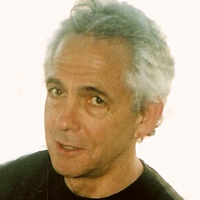Whenever we're in danger of thinking we've become civilized, something reminds us we're still predators and prey. Take the argument over the minimum wage. The federal standard is currently $7.25, less than $15,000 a year. For a family of four, the poverty level is $24,000. If 24 defines poverty, imagine life on 15. Russia abolished serfdom 150 years ago, when we abolished slavery. Yet today, in America, where one out of six live in poverty, the old philosophy of giving people just enough food to be worked to death persists. Where work is unskilled or semiskilled, there are always others ready -- if not willing -- to take their place.
Ten dollars an hour is not emancipation, just a higher level of deep poverty. But for even this crumb, business interests demand a cut in the food stamps that give people the strength to work jobs that don't pay them enough to eat.
This isn't just Social Darwinism. It's bad economics. Far from creating more unemployment or driving companies overseas, higher wages create consumers, the engine of economic growth. Since the poor use all their money to consume, their gains go right back into the economy. Better yet, from the employers' standpoint, the entire society will continue to bear the collateral damage resulting from the poor still being unable to afford comprehensive insurance, the education needed to get ahead, or a healthy diet.
Upping the minimum wage is a short-term fix for a seemingly intractable problem. Czar Alexander thought freeing the serfs would forestall revolution. In reality, it only profited landowners, who sold former vassals tiny plots at top ruble, and sowed more discontent. But the newly-liberated could no longer complain they were virtual slaves. Now they were free to starve. Our wage serfs also remain free to live below the poverty level, with the same upward mobility they would have had in Czarist Russia. Raising the minimum wage without addressing how the quality of employment affects the quality of life only puts off our day of reckoning.
With a Perspective, I'm Richard Friedlander.
Richard Friedlander is a mediator. He lives in the East Bay.
